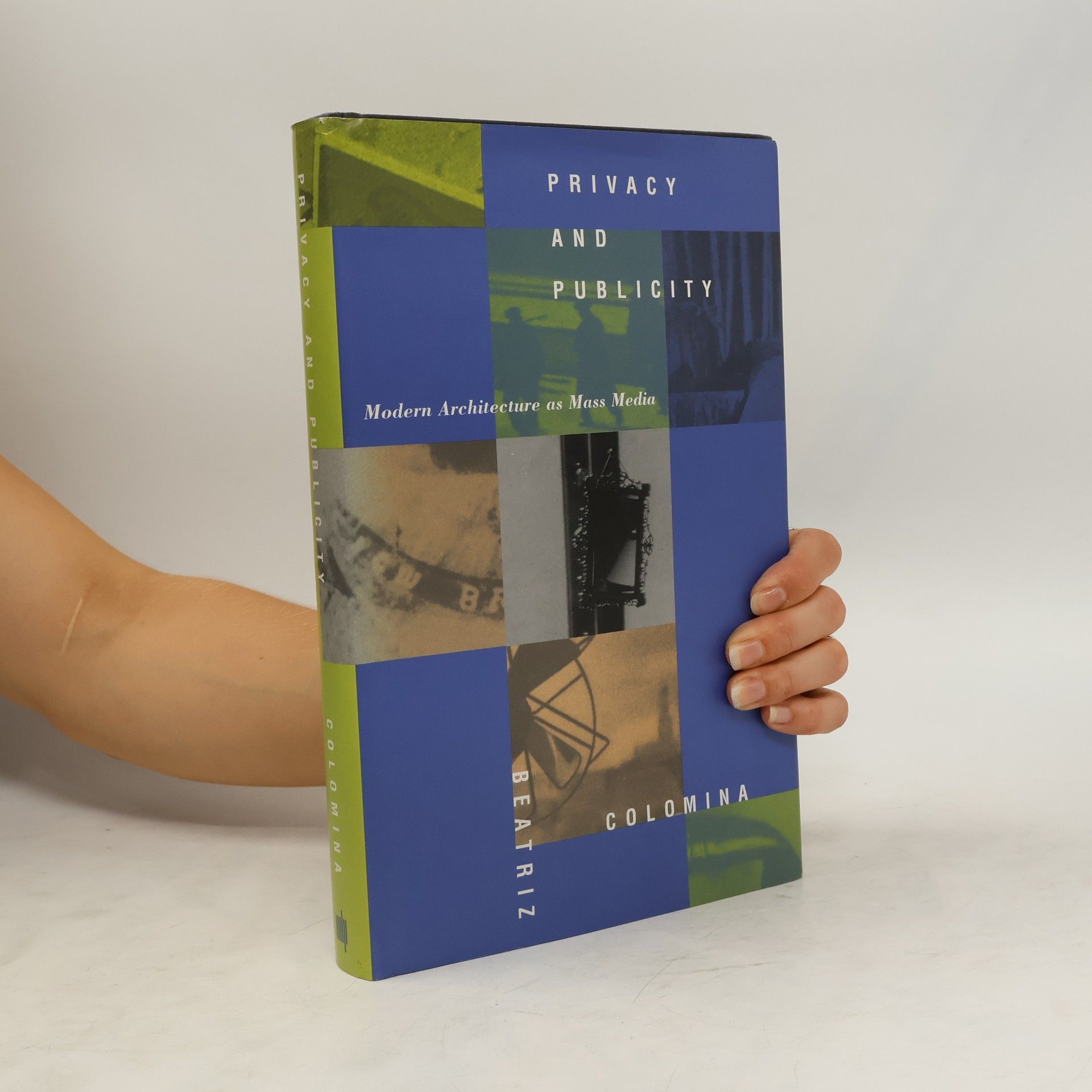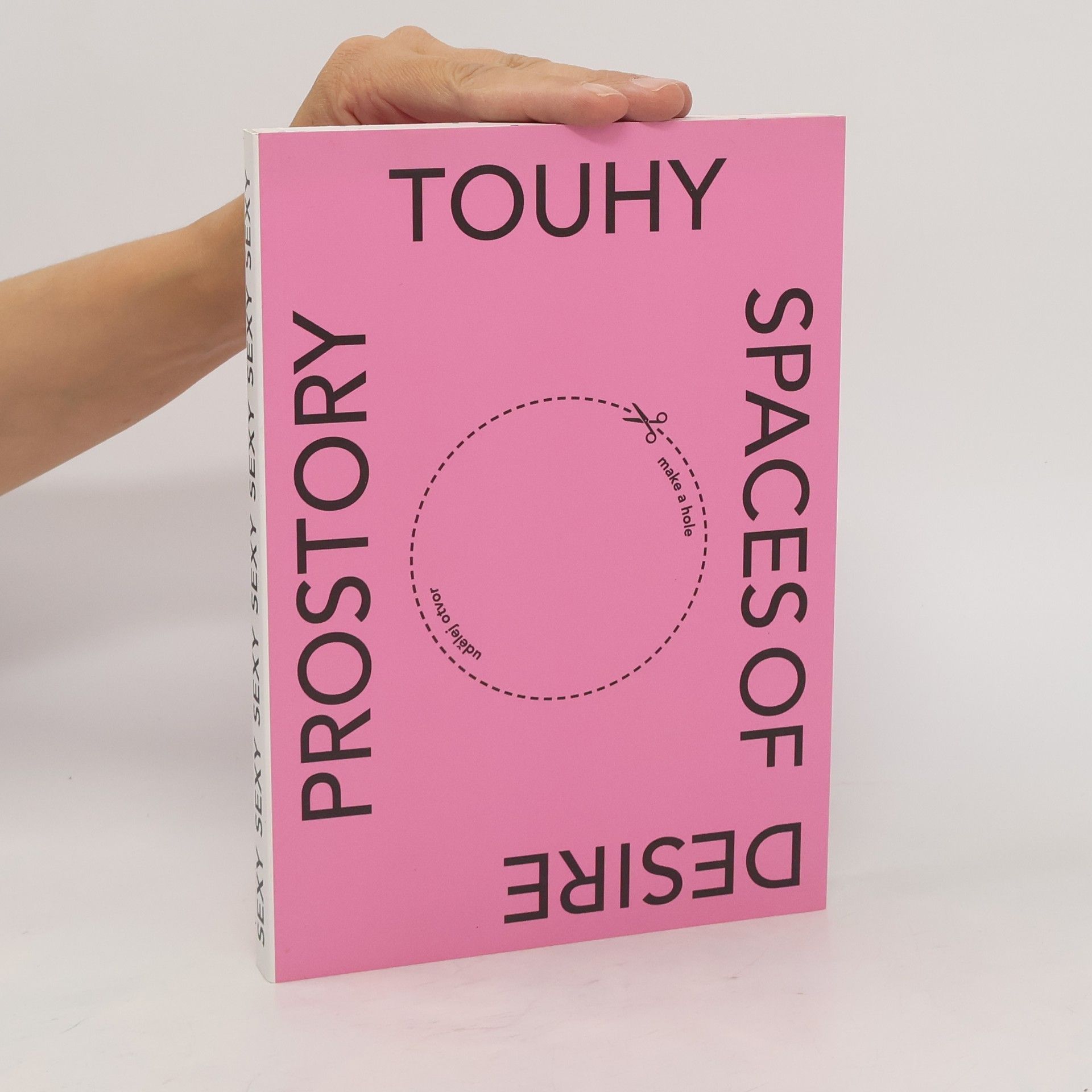Katalog výstavy v Galerii Jaroslava Fragnera, 5. srpna - 25. září 2016
Beatriz Colomina Knihy






X-Ray Architecture
- 200 stránek
- 7 hodin čtení
Illuminates the hidden relationship between building and body
Manifesto architecture
- 110 stránek
- 4 hodiny čtení
A history of the modern architectural manifesto, with a focus on Mies van der Rohe. The history of the avant-garde (in art, architecture, literature) can't be separated from the history of its engagement with mass media. It is not just that the avant-garde used media to publicize its work; the work did not exist before its publication. In architecture, Adolf Loos, Le Corbusier, and Mies van der Rohe came to be known through their influential writings and manifestos published in newspapers, journals, and little magazines. Entire groups, from Dada and Surrealism to De Stijl, became an effect of their manifestos. The manifesto was the site of self invention, innovation, and debate. Even buildings themselves could be manifestos. The most extreme and radical designs in the history of modern architecture were realized as pavilions in temporary exhibition. In the third book in the Critical Spatial Practice series, Beatriz Colomina traces the history of the modern architecture manifesto, with particular focus on Mies van der Rohe, and the play between the written and built work. This essay propels the manifesto form into the future, into an age where electronic media are the primary sites of debate, suggesting that new forms of manifesto are surely emerging along with new kinds of authorship, statement, exhibition, and debate. Critical Spatial Practice 3 Edited by Nikolaus Hirsch, Markus Miessen Featuring artwork by Dan Graham
Raumplan versus Plan Libre
- 200 stránek
- 7 hodin čtení
Srovnání Loose s Le Corbusierem odhaluje fascinující tvůrčí napětí mezi jejich přístupy. Oba architekti se zabývají autonomií architektonických prostředků, přičemž každý z nich umisťuje svou práci do specifického kontextu. Loose vychází z tradiční řemeslné činnosti, která je určena sociálně, zatímco Le Corbusier se soustředí na rozdělení práce mezi navrhování a realizaci, přičemž zohledňuje nové technologie. Kulturní pozadí obou architektů situaci dále komplikuje, neboť prostor zahrnuje jak dojem kontinuity, tak vzdálenosti a uzavření. Jejich terminologie, jako Raum a espace, pravděpodobně ovlivnila jejich vize. Toto aktualizované vydání zkoumá přínosy obou velikánů moderní architektury novým pohledem. Publikace zahrnuje eseje od Loose i Le Corbusiera a analyzuje vývoj jejich práce, s důrazem na projekty rodinných domů, od Strasserova domu (1919) po Poslední dům (1932) a od systému Dom-Ino (1915) po vilu Savoye (1932). Díky podrobnému přehledu a analýzám kniha nabízí čtenářům hlubší porozumění motivacím těchto dvou architektů, kteří jsou si blízcí, a přesto tak odlišní. Příspěvky zahrnují autory jako Johan van de Beek, Beatriz Colominová, Arjan Hebly, Jan de Heer, Stanislaus von Moos a Max Risselada, spolu s originálními texty obou architektů.
Domesticity at War
- 280 stránek
- 10 hodin čtení
Colomina delves into the intricate interplay between architecture and media, revealing how these elements reshape the boundaries between public and private spaces. The book examines the impact of domesticity in wartime, highlighting the evolving nature of home and shelter in the context of conflict. Through this lens, it offers a thought-provoking analysis of how our environments influence and reflect societal dynamics.
Privacy and Publicity
Modern Architecture as Mass Media
"This book explores what art can tell us about "the self," or the sense of interiority that each of us, as separate individuals, experience. Today the "self" is often dismissed because it seems to ignore the ways in which we are all defined by structures and categories of identity (from capitalism and the family to constructs of gender and race). Yet, as Rachel Haidu observes, our feelings that we are singular and individuated--regardless of the structures we belong to--can be intensified, deepened, and negotiated by art. Artworks not only elicit feelings in the viewer that she is profoundly herself, but some even examine how interior lives come to feel private and unique. Haidu investigates this sense of interiority through the work of six contemporary artists who consciously want to provoke the experience in viewers: painters Philip Guston and Amy Sillman; film/media artists James Coleman and Steve McQueen; and contemporary dancers/choreographers Anne Teresa De Keersmaeker and Yvonne Rainer"-- Provided by publisher
Cinema Olanda, Wendelien van Oldenborgh
- 144 stránek
- 6 hodin čtení
Cinema Olanda, ein Projekt der Künstlerin Wendelien van Oldenborgh und der Kuratorin Lucy Cotter stellt den niederländischen Beitrag auf der 57sten Biennale von Venedig 2017 dar. Die Ausstellung zeigt drei neue filmische Werke, die in einer eigens für Gerrit Rietvelds Pavillon entworfenen Installation mit der Architektur in Beziehung treten. Darin arbeitet Cinema Olanda die Bruchkanten heraus, die sich in dem Bild der Niederlande zeigen – gespalten zwischen ihrer Vorreiterrolle als transparente Nation und den sich rasant verändernden sozialen, kulturellen und politischen Realitäten. Das am Film orientierte Vorgehen dient van Oldenborgh als Produktionsmethode: Während der Live-Aufnahmen werden die Skripte gemeinsam erarbeitet. Neben eindrücklichem Bildmaterial enthält diese Publikation Essays von Fachautoren aus unterschiedlichen Bereichen. So wird die Beschäftigung von Cinema Olanda mit Kunst, Film und Architektur ausgeweitet und zu Fragen von sozialem Handeln und Vorstellungswelten in Beziehung gesetzt. Ausstellung: Biennale di Venezia, Niederländischer Pavillon 13.5.–26.11.2017
Prywatne i publiczne. Architektura nowoczesna...
- 276 stránek
- 10 hodin čtení
Książka Beatriz Colominy Prywatne i publiczne. Architektura nowoczesna jako medium masowe przetarła szlaki nowemu sposobowi pisania o architekturze, jej funkcjonowaniu w świecie nowoczesnych mediów i uwikłaniu w relacje społeczne. Interpretując na nowo twórczość Le Corbusiera i Adolfa Loosa, autorka przyczyniła się do rozwoju krytycznej refleksji na temat architektury modernistycznej, której obraz, zbudowany na podstawie wieloletnich badań wydawał się już określony i zamknięty. Tradycyjnym analizom przeciwstawiła uważne spojrzenie na obrzeża, badanie relacji między wnętrzem a zewnętrzem, twórcą a przekazem, architekturą a jej reprezentacją. Mimo upływu niemal 30 lat od pierwszego wydania (1994) książka jest stale cytowana, tłumaczona w całości i fragmentach oraz omawiana na uniwersytetach. Stała się klasyczną pozycją w dziedzinie nowoczesnego pisania o architekturze. Niniejsze wydanie jest pierwszym przekładem na język polski.
